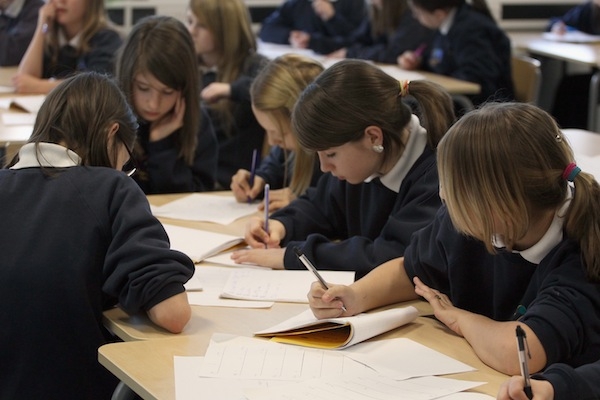Today’s jobs market is highly competitive and globalised. It is no longer enough simply to see if we are doing better than we did last year, or the year before, or 10 years ago.
Far better to judge how we are doing against other countries – for our young people will be fighting for jobs against their peers from Singapore and China, from Canada and the US, from Sweden and Slovenia.That is why I such set stock by international league tables, and of analysis of them. We see how we compare against others – and we discover who we must learn from.
So it is enormously worrying when respected researchers say that our brightest pupils, on a par with their peers in the world-leading education systems of the Far East at age 10, have fallen two years behind them by age 16. And not only that – they make less progress in that time than all the countries that the researchers studied: Scotland, Australia, Italy, USA, Norway, Lithuania, Russia and Slovenia.
This is a damning indictment of Labour’s record, based as it is on data from between 2003 and 2009. This Government is clearing up the mess they created. Our reforms – tougher discipline, more rigorous exams, more freedom for headteachers, a more demanding curriculum and higher quality teaching – will drive up standards so our pupils have a first-class education that matches the best in the world.
The researchers said we need to concentrate on one area in particular: reforming mathematics education. We have just published for consultation new programmes of study designed to restore much-needed rigour to the curriculum – from the start of primary school right through to GCSE level.
These curricula will give all children the basics they need to move on to more advanced topics, and they will stretch the brightest. In primary school there will be a renewed focus on arithmetic; subtraction, addition, multiplication and division – this is where the high-performing countries generally do well. Fluency in arithmetic provides a solid basis for later study in areas from algebra to statistics. Children will be expected to understand and practice written methods, not simply reach for calculators, which will be banned from tests for 11-year-olds. In secondary school, students perform relatively worse in algebra and geometry compared to the top performers. So again, these elements will be at the core of the secondary curriculum
Of course, these reforms will take time – there is much to fix. But when a country learns the lessons of international evidence and reforms accordingly, standards do rise.
Liz Truss is Education Minister.






Comments